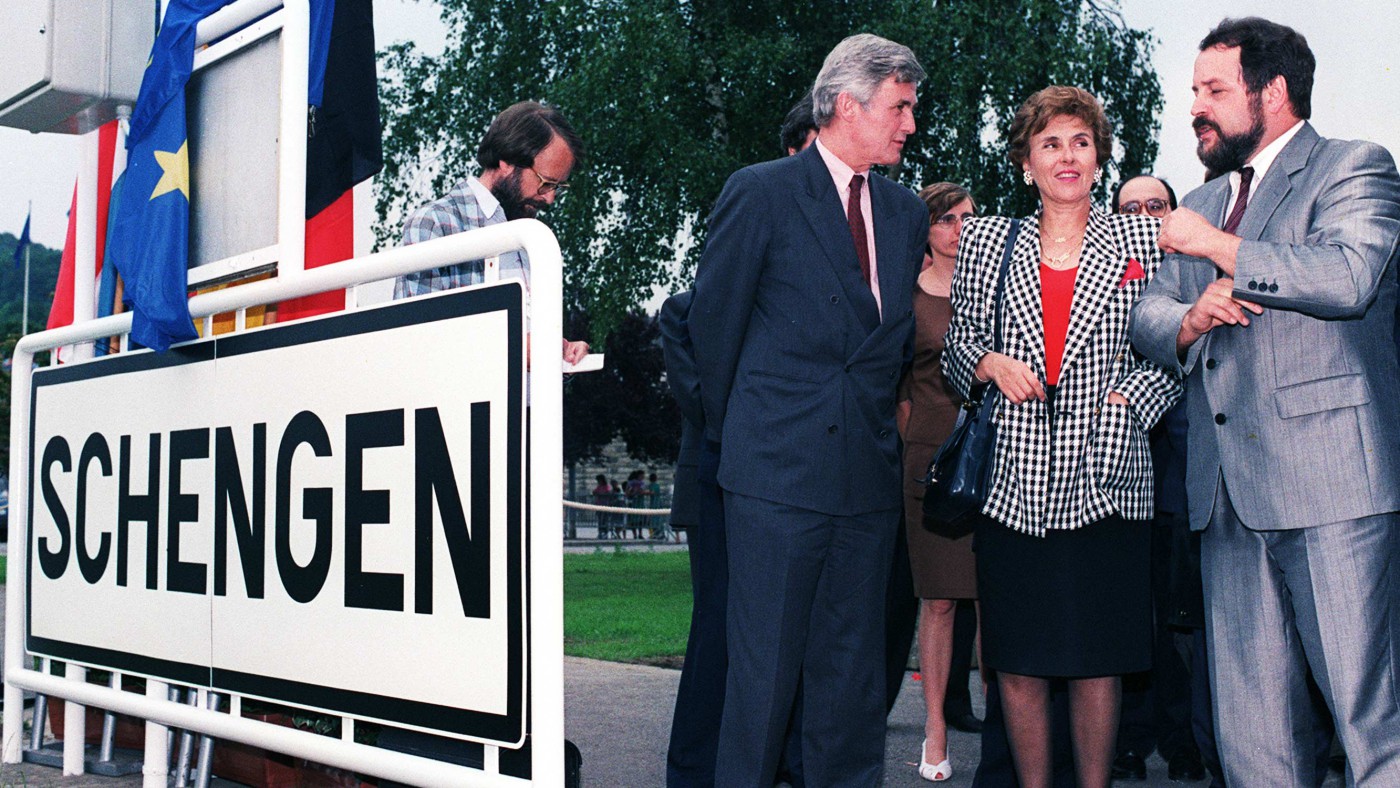The EU is building an army, or so we’re told. Proposals from the Commission to build an armed, drone-equipped independent EU border agency have been met with horror here in Britain, as well as in places like Poland and Sweden.
As bad as they sound, the proposals are probably the only way to make Europe’s passportless travel area work. But they might also highlight why Britain cannot remain in the European Union.
The border force is designed to fix the ‘leaky state’ problem with the EU’s Schengen Area. In Schengen, EU nationals do not need to show passports to travel between Schengen countries. In practice this means that border controls in general have been reduced significantly. This is a key piece of EU law. Britain and Ireland are the only EU member states to have opted out.
Schengen is a good idea for countries that share land borders with each other. It makes travel much easier in general and allows, say, Belgians to conveniently work in the Netherlands and Germany.
But there is an obvious flaw. Once someone is in the Schengen Area, they’re in – even if they shouldn’t be.
This is why Europe’s difficulties with the migrant crisis have been so acute. Some countries at the edge of the Schengen Area, like Greece and Hungary, have failed to keep out hundreds of thousands of migrants, creating a crisis for all the Schengen countries and incentivising many more to come.
For Schengen to work, interior countries must have faith that frontier countries will enforce their borders effectively. If a country like Greece does not have the money, manpower or political will to do that, the whole system breaks down. Hence the new EU-run border force.
The most controversial element – that force’s power to intervene in a state without its government’s permission – would only apply to Schengen member states. This is certainly ugly, but if this year’s influx of unregistered migrants is not a one-off, it’s hard to see how something like Schengen can exist without a mechanism of this sort.
Many Schengen states will judge that this loss of sovereignty is a price worth paying, both to keep the benefits of Schengen and to avoid a major setback in European unity. As The Economist says, “Schengen is among the most visible manifestations of European unity; its erosion would send a powerful signal.”
Sensible as all this may be it highlights the fundamental problem that many of us have with the EU.
The main arguments for Brexit have, thus far, been astonishingly weak. No, Poles are not stealing British jobs, or imposing a burden on the welfare state. Free movement with the rest of Europe – albeit not Schengen-style passportless travel – is one of the best things about the EU, and preserving it is one of the best reasons to stay in.
The case for leaving the EU is much more fundamental than that. It is that the EU appears to be constantly accumulating more and more power, and never letting go of it.
It never wastes a good crisis. Witness the new Banking Union, which aims to provide a ‘single rulebook’ for financial institutions across the EU and was introduced after the 2008 financial crisis. Never mind that it was not the absence of a single rulebook that caused the crisis, and indeed is most likely to have been global regulations that, disastrously, told banks to hold more mortgage and government debt than they otherwise would have liked to.
Like Schengen, the UK declined to sign up to the banking union. The UK is also not a euro member – another central part of the European project.
These are not bolt-ons that EU member states can pick and choose from: the UK is the only member state to be a member of none of these mechanisms. These are core elements of the European Union, as much as the Single Market itself.
These fudges might work for Britain right now but they are limited, and when we do opt in there is rarely a chance to opt back out. And our opt-outs do not change the fact that Brussels has preeminence over Westminster on most important issues, and appears to be accumulating power whenever it can.
For many states this may be the right way to go: eurosceptics are too dismissive of the EU’s historical role in maintaining peace in Europe, and we should treasure the EU’s preservation of open, lightly-regulated trade and labour markets. Schengen is a valuable thing, and to preserve it a unified border agency may be a price worth paying. For some member states, an increasingly centralised EU might be the right course.
But I am not convinced that this is right path for Britain.
To be sure, there are good arguments in favour of remaining in. In many respects the EU straightjacket is a good thing: freedom of trade and movement means that our politicians cannot lurch into protectionism over goods or people. If Jeremy Corbyn somehow became Prime Minister, the EU might be the one thing that could hold his nationalization agenda back.
But locking people in to liberalism without their consent is dangerous. It can provoke a backlash, as the rise of Trump and the European far right demonstrates.
In any case, in the long run the costs of ever greater centralisation may outweigh these benefits. If power is only flowing one way and the UK is already outside of the biggest EU institutions, it may be time to use our biggest, final opt-out – and leave.


